第14章 1(1)
Of things that exist, some exist by nature, some from other causes.
'By nature' the animals and their parts exist, and the plants and the simple bodies (earth, fire, air, water)-for we say that these and the like exist 'by nature'.
All the things mentioned present a feature in which they differ from things which are not constituted by nature. Each of them has within itself a principle of motion and of stationariness (in respect of place, or of growth and decrease, or by way of alteration). On the other hand, a bed and a coat and anything else of that sort, qua receiving these designations i.e. in so far as they are products of art-have no innate impulse to change. But in so far as they happen to be composed of stone or of earth or of a mixture of the two, they do have such an impulse, and just to that extent which seems to indicate that nature is a source or cause of being moved and of being at rest in that to which it belongs primarily, in virtue of itself and not in virtue of a concomitant attribute.
I say 'not in virtue of a concomitant attribute', because (for instance) a man who is a doctor might cure himself. Nevertheless it is not in so far as he is a patient that he possesses the art of medicine: it merely has happened that the same man is doctor and patient-and that is why these attributes are not always found together. So it is with all other artificial products. None of them has in itself the source of its own production. But while in some cases (for instance houses and the other products of manual labour) that principle is in something else external to the thing, in others those which may cause a change in themselves in virtue of a concomitant attribute-it lies in the things themselves (but not in virtue of what they are).
'Nature' then is what has been stated. Things 'have a nature'which have a principle of this kind. Each of them is a substance; for it is a subject, and nature always implies a subject in which it inheres.
The term 'according to nature' is applied to all these things and also to the attributes which belong to them in virtue of what they are, for instance the property of fire to be carried upwards-which is not a 'nature' nor 'has a nature' but is 'by nature' or 'according to nature'.
What nature is, then, and the meaning of the terms 'by nature' and 'according to nature', has been stated. That nature exists, it would be absurd to try to prove; for it is obvious that there are many things of this kind, and to prove what is obvious by what is not is the mark of a man who is unable to distinguish what is self-evident from what is not. (This state of mind is clearly possible. A man blind from birth might reason about colours. Presumably therefore such persons must be talking about words without any thought to correspond.)
Some identify the nature or substance of a natural object with that immediate constituent of it which taken by itself is without arrangement, e.g. the wood is the 'nature' of the bed, and the bronze the 'nature' of the statue.